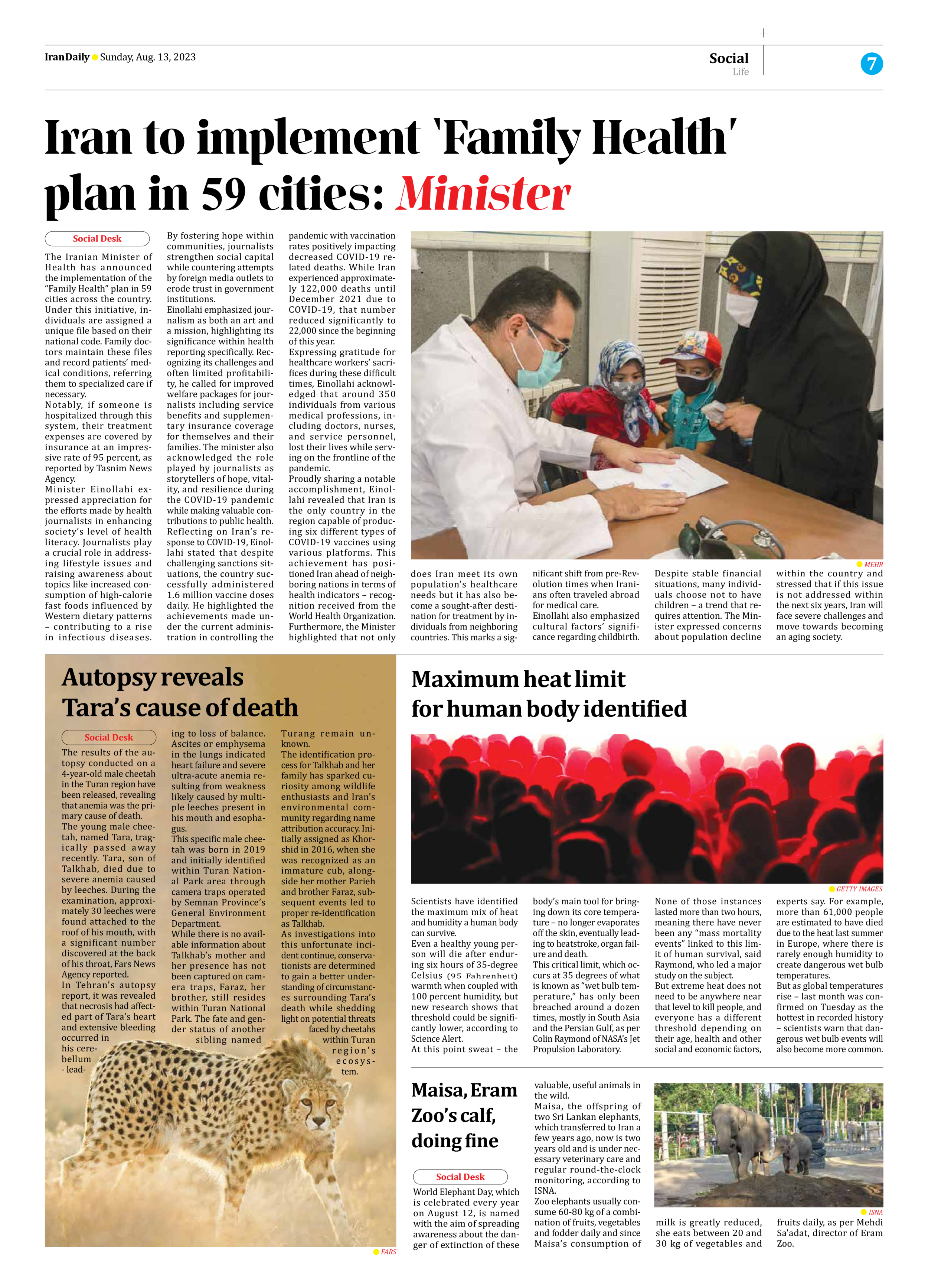
Iran to implement ‘Family Health’ plan in 59 cities: Minister
The Iranian Minister of Health has announced the implementation of the “Family Health” plan in 59 cities across the country. Under this initiative, individuals are assigned a unique file based on their national code. Family doctors maintain these files and record patients’ medical conditions, referring them to specialized care if necessary.
Notably, if someone is hospitalized through this system, their treatment expenses are covered by insurance at an impressive rate of 95 percent, as reported by Tasnim News Agency.
Minister Einollahi expressed appreciation for the efforts made by health journalists in enhancing society’s level of health literacy. Journalists play a crucial role in addressing lifestyle issues and raising awareness about topics like increased consumption of high-calorie fast foods influenced by Western dietary patterns – contributing to a rise in infectious diseases. By fostering hope within communities, journalists strengthen social capital while countering attempts by foreign media outlets to erode trust in government institutions.
Einollahi emphasized journalism as both an art and a mission, highlighting its significance within health reporting specifically. Recognizing its challenges and often limited profitability, he called for improved welfare packages for journalists including service benefits and supplementary insurance coverage for themselves and their families. The minister also acknowledged the role played by journalists as storytellers of hope, vitality, and resilience during the COVID-19 pandemic while making valuable contributions to public health.
Reflecting on Iran’s response to COVID-19, Einollahi stated that despite challenging sanctions situations, the country successfully administered 1.6 million vaccine doses daily. He highlighted the achievements made under the current administration in controlling the pandemic with vaccination rates positively impacting decreased COVID-19 related deaths. While Iran experienced approximately 122,000 deaths until December 2021 due to COVID-19, that number reduced significantly to 22,000 since the beginning of this year.
Expressing gratitude for healthcare workers’ sacrifices during these difficult times, Einollahi acknowledged that around 350 individuals from various medical professions, including doctors, nurses, and service personnel, lost their lives while serving on the frontline of the pandemic.
Proudly sharing a notable accomplishment, Einollahi revealed that Iran is the only country in the region capable of producing six different types of COVID-19 vaccines using various platforms. This achievement has positioned Iran ahead of neighboring nations in terms of health indicators – recognition received from the World Health Organization.
Furthermore, the Minister highlighted that not only does Iran meet its own population’s healthcare needs but it has also become a sought-after destination for treatment by individuals from neighboring countries. This marks a significant shift from pre-Revolution times when Iranians often traveled abroad for medical care.
Einollahi also emphasized cultural factors’ significance regarding childbirth. Despite stable financial situations, many individuals choose not to have children – a trend that requires attention. The Minister expressed concerns about population decline within the country and stressed that if this issue is not addressed within the next six years, Iran will face severe challenges and move towards becoming an aging society.







